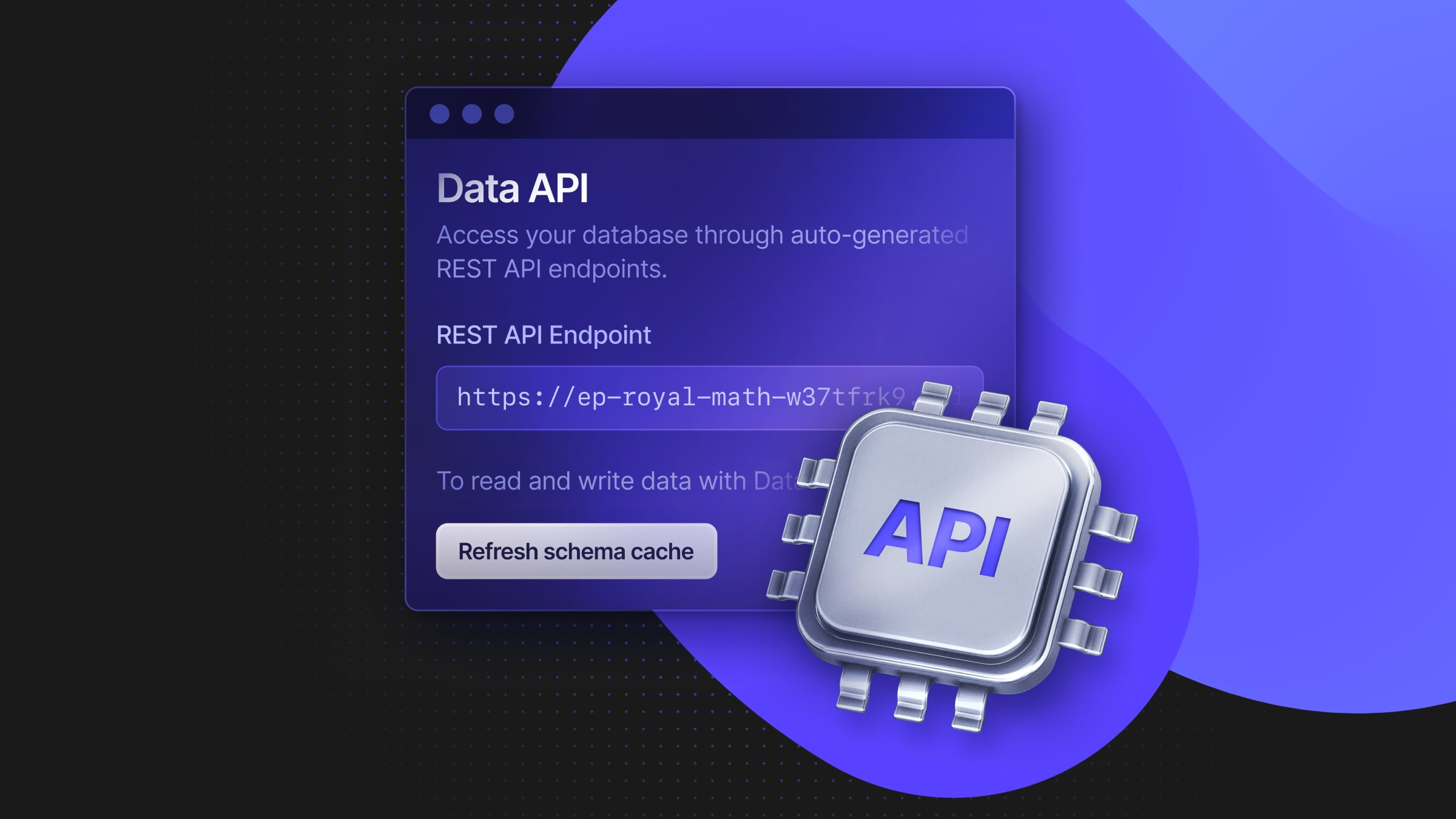Postgres Event Triggers Are Now Supported in Neon
Track schema changes, automate workflows, and unlock sync engines like Zero
just shipped
Postgres event triggers are a powerful (although often overlooked) feature. Regular Postgres triggers respond to row-level changes in a table, but event triggers fire on DDL commands like CREATE, ALTER, and DROP – allowing you to track schema changes, enforcing rules, and automating workflows that depend on database structure, not data.
We now support event triggers in Neon. Here’s some inspiration on things you can build with them.
Track schema changes in real time
If you’d like to know when someone from your team adds a table, drops a column, or modifies an index, event triggers give you a built-in mechanism to monitor and log these changes. You would simply set up an event trigger on ddl_command_end, and route key context (user, command, object) to an audit_ddl table or an external log system.
CREATE EVENT TRIGGER log_ddl_changes
ON ddl_command_end
EXECUTE FUNCTION log_to_audit_table();Automate what happens when your schema changes
Schema changes come with maintenance (tagging new tables, generating access policies, syncing metadata). With event triggers, you can build those actions directly into your database workflow. You would use ddl_command_end to listen for CREATE, ALTER, or DROP events, and in your trigger function, inspect the command and respond accordingly – e.g. inserting rows into a metadata table, sending a Slack alert, or calling an API.
IF TG_TAG = 'CREATE TABLE' THEN
INSERT INTO table_catalog (...) VALUES (...);
END IF;Power sync engines like Zero
Platforms like Zero rely on tracking schema changes to keep local and remote databases in sync, using event triggers to react instantly when things change. If you’re using Zero together with Neon,
- Create an event trigger on
ddl_command_endto listen for schema changes - Use the
pg_event_trigger_ddl_commands() function inside your trigger to extract information about what changed - Forward that data to Zero via a webhook or messaging queue so it can update its local model accordingly
Set up production guardrails
It’s much better if schema changes in production are not a DROP TABLE away. Event triggers let you enforce rules on your production database, e.g. restricting destructive commands to specific roles or blocking all DDL operations during deploy windows.
This example code defines an event trigger function that inspects every DDL command before it runs. If the current user is not ‘admin' and tries to execute a DROP TABLE, the function raises an exception and blocks the command from executing:
CREATE OR REPLACE FUNCTION prevent_dangerous_ddl()
RETURNS event_trigger AS $$
DECLARE
cmd RECORD;
BEGIN
FOR cmd IN SELECT * FROM pg_event_trigger_ddl_commands() LOOP
IF current_user != 'admin' AND cmd.command_tag = 'DROP TABLE' THEN
RAISE EXCEPTION 'DROP TABLE not allowed for non-admins in production';
END IF;
END LOOP;
END;
$$ LANGUAGE plpgsql;
CREATE EVENT TRIGGER enforce_guardrails
ON ddl_command_start
EXECUTE FUNCTION prevent_dangerous_ddl();Clean up pg_cron jobs automatically
If you’re using pg_cron, dropping a table doesn’t clean up its jobs, which can lead to recurring errors like relation does not exist every time the job tries to run. Event triggers give you a chance to catch the drop and clean up in the same transaction.
To do this, create an event trigger on sql_drop. Inside the trigger function, use pg_event_trigger_dropped_objects() to inspect what was removed. If any of the dropped objects are tied to active cron jobs, you can delete the corresponding entries from cron.job. This keeps your scheduled tasks aligned with your schema and prevents old jobs from cluttering up your database.
DELETE FROM cron.job WHERE target_table = dropped_table_name;Get started
Event triggers open up a new layer of control in Neon. If you’ve been blocked by the lack of event triggers in other managed Postgres platforms, give Neon a try. Event trigger support is available by default through the neon_superuser role in any branch.
Check out the docs on event triggers for more. And if you have questions, find us on Discord.


